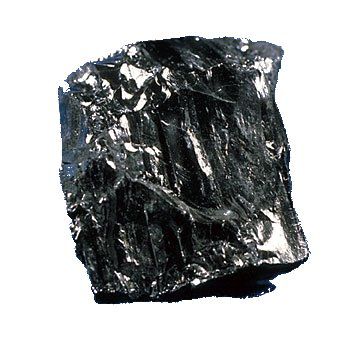K'JIPUKTUK (HALIFAX) – The potential reopening of the Donkin coal mine may bring much-needed jobs to Cape Breton.
But at what cost to miners' safety and the environment?
Last week Matt Fifield, managing director of Kameron Collieries, told Donkin residents that the company, a subsidiary of coal mining giant the Cline Group LLC, is serious about its plans to reopen the Donkin coal mine.
As if to drive home this point, three days later Kameron Collieries announced that it bought out its Nova Scotia junior partner and now has full operational control of the mine. The mine was developed in the 1980, but never saw commercial production.
At that community meeting Fifield told residents that the union-averse company's safety record in the US is better than the national average.
But statistics can be deceiving.
Chris Cline, owner of the Cline empire, tells Bloomberg Businessweek Magazine his safety secret. His mines are safer than those of his rivals because he employs fewer people. Safety in the mining industry is frequently measured in days lost due to injuries per million tons of coal produced.
And statistics offer little solace to the family of Daniel Payne, who in the spring of this year was killed in an accident at M-Class mining in Southern Illinois. M-Class Mining, like Nova Scotia's Kameron Collieries, is a subsidiary of the Cline Group.
The 25-year old Payne, who left a wife and unborn child, was the second to die at an Illinois M-Class Mining site in just seven months.
“The blame was placed squarely with the company for not having adequately maintained equipment in place and for not having proper procedures,” Will Reynolds tells the Halifax Media Co-op.
Reynolds is an Illinois activist and reporter who has closely followed the Cline conglomerate ever since it moved into Illinois.
Reynolds gained notoriety when he exposed Cline's political donations to functionaries within the Illinois Department of Natural Resources, tasked with regulating mining activity in the state. The politicians were forced to resign.
“They took campaign contributions from Chris Cline companies to their county (Democratic) party accounts while being in charge of regulating mines safety and issuing permits for new mines, which is a pretty outrageous conflict of interest,” says Reynolds.
“Through his companies Chris Cline has given massive political donations to just about anyone in politics. That's how he moved int the area,” Reynolds says. “That's also what he did when he moved into West Virginia, it will be interesting to see if he does that elsewhere.”
Cline mining companies have also proven to be bad neighbours in Illinois, Reynolds charges.
Longwall mining is a technology favoured by Cline companies in Illinois. It allows for controlled roof collapses and typically requires fewer miners, but land overhead has been known to drop by as much as six feet, forcing residents to accept buy-outs and leave.
Illinois environmentalists also mention coal dust, water contamination, and hazardous waste reservoirs as environmental issues directly attributable to Cline mining activities.
Residents of Donkin will face different environmental issues.
In 2012 local lobster fishermen expressed grave concerns about plans by then-owner Xtrata to ship coal by barge to bulk carriers waiting offshore in Morien Bay.
At the community meeting Fifield confirmed that shipping by barge is still the intention. He referred to Donkin's location on the Atlantic Ocean as one of the main attractions for the Cline Group.
And then there is the impact of burning coal on climate change.
Chris Cline famously blames global warming on “clusters of sunspots or the Earth wobbling on its axis.”
Many environmentalists point to more mainstream science that shows that burning coal contributes to climate change, and argue that the Donkin coal is better left underground. Catherine Abreu, energy coordinator for the Ecology Action Centre is one of those people.
Abreu cautions that talk about Nova Scotia Power buying Donkin coal for its nearby power plants at Point Aconi and Lingan may be premature.
“The coal that would come from Donkin has a higher burning efficiency, in that regard it is a better quality coal than much of the coal we import,” says Abreu.
“But the Donkin coal has a higher sulfur and mercury content,” she explains. “So if Nova Scotia Power were to purchase significant amounts of coal from Donkin then that would mean we have to invest in scrubbing technologies in order to meet emission guidelines.”
Emission guidelines which have recently become more stringent, she adds. Not only has Nova Scotia Power to make up for emission targets that were deferred in 2010, new targets released last week by the Department of Environment will only add to these challenges.
So what are Cape Bretoners to make of all this?
Be careful, Reynolds cautions.
“Every region in North America that depends on coal mines for its economy is poor. And it will remain poor until it diversifies its economy,” he says.
“Coal is a parasitic industry, it destroys the roads, the water, it destroys everything you need if you want jobs in other fields. If you create coal jobs, you have to ask how many jobs you have to give up.”
Follow Robert Devet on Twitter @DevetRobert



